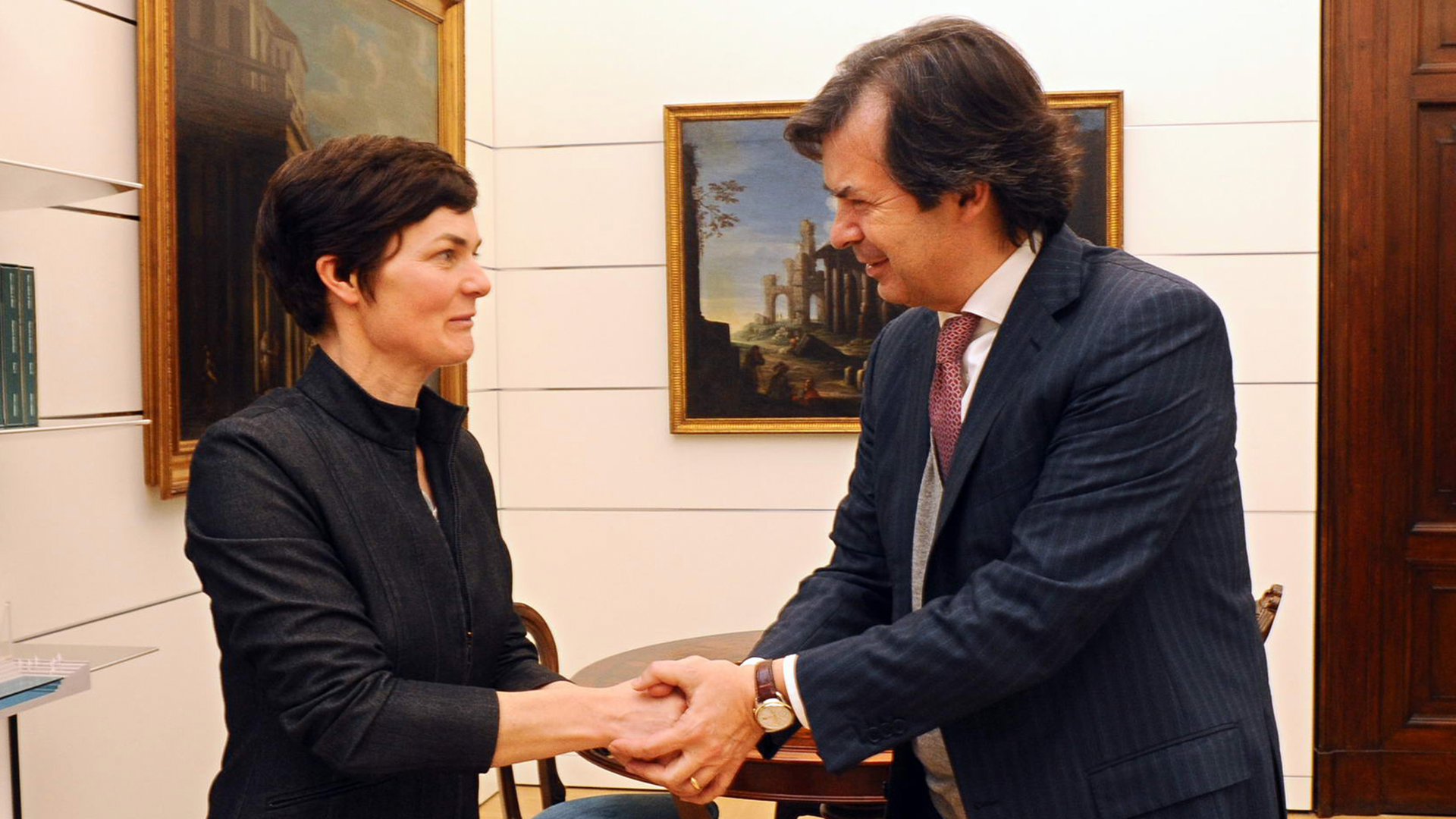Sustainability
Momentum for the green revolution
Welcome to the fourth episode of Intesa Sanpaolo Talks. In this podcast we look at the bank’s relationship with the Ellen MacArthur Foundation.
Intesa Sanpaolo has been the Ellen MacArthur Foundation’s global partner for financial services since 2015. When that commitment was extended in January this year, it marked a new phase in their joint mission to accelerate the shift to a circular economy.
To find out what that relationship means in practice, we met Andrew Morlet, the Foundation’s chief executive, at the Royal Ocean Racing Club in London. The venue is fitting, given that Dame Ellen MacArthur forged her reputation as a yachtswoman – breaking the world record for solo circumnavigation of the globe in 2005. Her experiences all alone among the towering waves led to a “green epiphany”. Ever since, she has used her fame to shine a light on the fragile state of our planet.
“I guess our ultimate goal is to create unstoppable momentum – to push it as far as we can as quickly as possible,” says Morlet. “From the outset we adopted an approach that was different. Rather than talking about efforts to reduce the harm of a system that can’t work – a linear economy – [we thought about] how to create a vision and a framework for a system that can.

Andrew Morlet - Ceo of the Ellen MacArthur Foundation
Ellen MacArthur, Chairman and founder of the Ellen MacArthur Foundation, and Carlo Messina, CEO of Intesa Sanpaolo Group, handshake after signing agreement on Global Partnership in 2015 in Milan
“The other part of it was to work with industry – with front-running industrial players that could get stuff done quickly to bring an ecosystem around.”
This is where Intesa Sanpaolo comes in as one of 10 core global partners, who not only underpin the Foundation’s work but lead by example within their own industries.
“Within the 10 we have a real mix – tending to be companies representative of a sector,” says Morlet. “Intesa Sanpaolo is our financial services partner, but we have others in automotive, fast-moving consumer goods, fashion, plastics, food…”
But while a fashion house has something tangible to work with – changing to use less water in its manufacturing processes, for example – the potential of finance is harder to grasp.
“Finance is an essential part of the economy and for the agenda of the super-economy it’s a propellant; it’s the fuel that sits behind businesses across all the other sectors,” explains Morlet. “Intesa Sanpaolo is a leader in the banking sector, particularly as we talk about the circular economy.”
Then there is the fact that the bank is based in Italy. “It is a very interesting place for a number of dimensions of the circular economy, whether it’s materials sciences, the bio-economy or design – all of these are representative of Italy’s brand and in the circular economy context they’re doing some amazing things.”
Many of the individual firms involved are customers of Intesa Sanpaolo, meaning the bank has leverage to ensure the right sort of commitments and investments.
“If you want to promote a circular economy, you need to understand how to measure circularity,” explains Morlet. “Intesa Sanpaolo has set up a series of criteria to measure and make decisions on lending to direct €5 billion towards circular-economic activity. That deliberate intention is hugely important.”
The relationship between Intesa Sanpaolo and the Ellen MacArthur Foundation having been refreshed, what is there still to achieve?
“Everybody’s learning and the whole topic is evolving, but working with Intesa Sanpaolo going forward we’re looking at the role of finance in the circular economy and how we bring other financial institutions from different parts of finance together.”
Despite gloomy newspaper headlines, Morlet remains upbeat: “Knowing we can shift our industrial systems quickly makes me optimistic that this is something that could make a big difference.”
“Knowing we can shift our industrial systems quickly makes me optimistic that this is something that could make a big difference.”
Last updated 20 June 2024